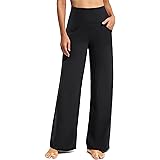Diversity needed to grow the game, say Black TMU hockey players ahead of university championship
As 25-year-old Elijah Roberts prepares for what will likely be his final weekend of university hockey, he looks back on a big change he’s noticed in the game since he started playing as a kid.
“You’d be on a team and you were the only Black player,” he said in an interview ahead of the U Sports men’s hockey national championship in Toronto.
But teams were already more diverse by the time Roberts’s brother, who is seven years younger, started playing, Roberts said. When Roberts came to Toronto Metropolitan University from the Ontario Hockey League in 2021, he said the team had multiple players and one coach who identified as Black.
“Which was for me, other than [during] summer hockey, the first time I’ve ever really had that,” Roberts said. “It just kind of shows, like, how inclusive our school is.”
TMU now has three Black-identifying players, including Roberts, and they’re hoping to do their city proud as the school hosts the national tournament this weekend at the Mattamy Athletic Centre, at the historic former site of Maple Leaf Gardens and current home to the TMU Bold and PWHL Toronto club.
“It’s great to have a diverse team and everyone was welcoming,” said TMU forward Kyle Bollers. “It’s very cool to have. You don’t see that often.”
The school takes to the ice against the University of Calgary Dinos in the tournament’s first game Thursday evening at 7 p.m. Eight schools from across the country will compete this weekend to become champions of Canadian university hockey.

School provides ‘safe space’ for hockey players
TMU head coach Johnny Duco, who notes former Black and female coaches have gone on from TMU to the pros, said diversity is a pillar of the school’s hockey program.
“Something we’ve taken a lot of pride in is providing a safe space for anybody in hockey,” he said.
This year’s tournament comes as hockey, particularly the sport’s governing body in Canada, is under scrutiny for accusations of abuse, discrimination and a toxic, exclusive culture.
In 2022, Hockey Canada started reporting on instances of on-ice discrimination across all levels and age groups. In the first year of reporting, the organization identified over 900 instances of race-based discrimination in sanctioned hockey games. The next year, that number rose to nearly 1,900 instances, though Hockey Canada says improved reporting may be chiefly responsible for the increase.
U Sports has its own code of conduct and harassment policy to deal with discrimination, said CEO Pierre Arsenault, but also follows Hockey Canada’s lead on rules and discipline regarding discrimination. The organization made discriminatory behaviour in games, such as taunts or intimidation, a “gross misconduct penalty,” for instance.
But Arsenault says discipline is the last resort for dealing with discrimination.
“What we’re really working toward is the idea of education and awareness and as much prevention as possible.”

Education could help prevent discrimination: Roberts
Both Roberts and Bollers said they’ve been lucky not to have experienced much discrimination in their playing days, and they hope better education and accountability at all levels of hockey will make their experience the norm for future players.
It’s something Roberts has discussed on his podcast, Soul on Ice, which he started with friends in 2020 to discuss hockey issues through a racialized lens. He says TMU offers seminars on discrimination and abuse — something he hopes will become a standard in university sport. He also wants to see trauma-informed support available to players who experience discrimination.
“If the education starts to come in, and there’s more kind of awareness about that, hopefully it kind of makes a change and … we see less incidents happening in the future,” he said. “It starts from the top down, right?”
Seeing more players from different backgrounds will also help, said Roberts. Watching former NHL defenceman P.K. Subban play showed him that Black players could excel at the sport without changing who they were, Roberts said, and he hopes more role models will inspire more kids who might otherwise feel hockey isn’t for them.
“You’d see more diverse crowds of people getting into the game,” he said.
Similarly, Roberts says he hopes his young daughter will be inspired to take up the game once she learns to skate, as the Professional Women’s Hockey League takes off.
Speaking of this week’s tournament, Roberts says he’s grateful to end his career at home, fighting for a championship with teammates whom he says will remain “friends for the rest of my life.”
“It’s a good way to go out.”
For more stories about the experiences of Black Canadians — from anti-Black racism to success stories within the Black community — check out Being Black in Canada, a CBC project Black Canadians can be proud of. You can read more stories here.

View original article here Source









